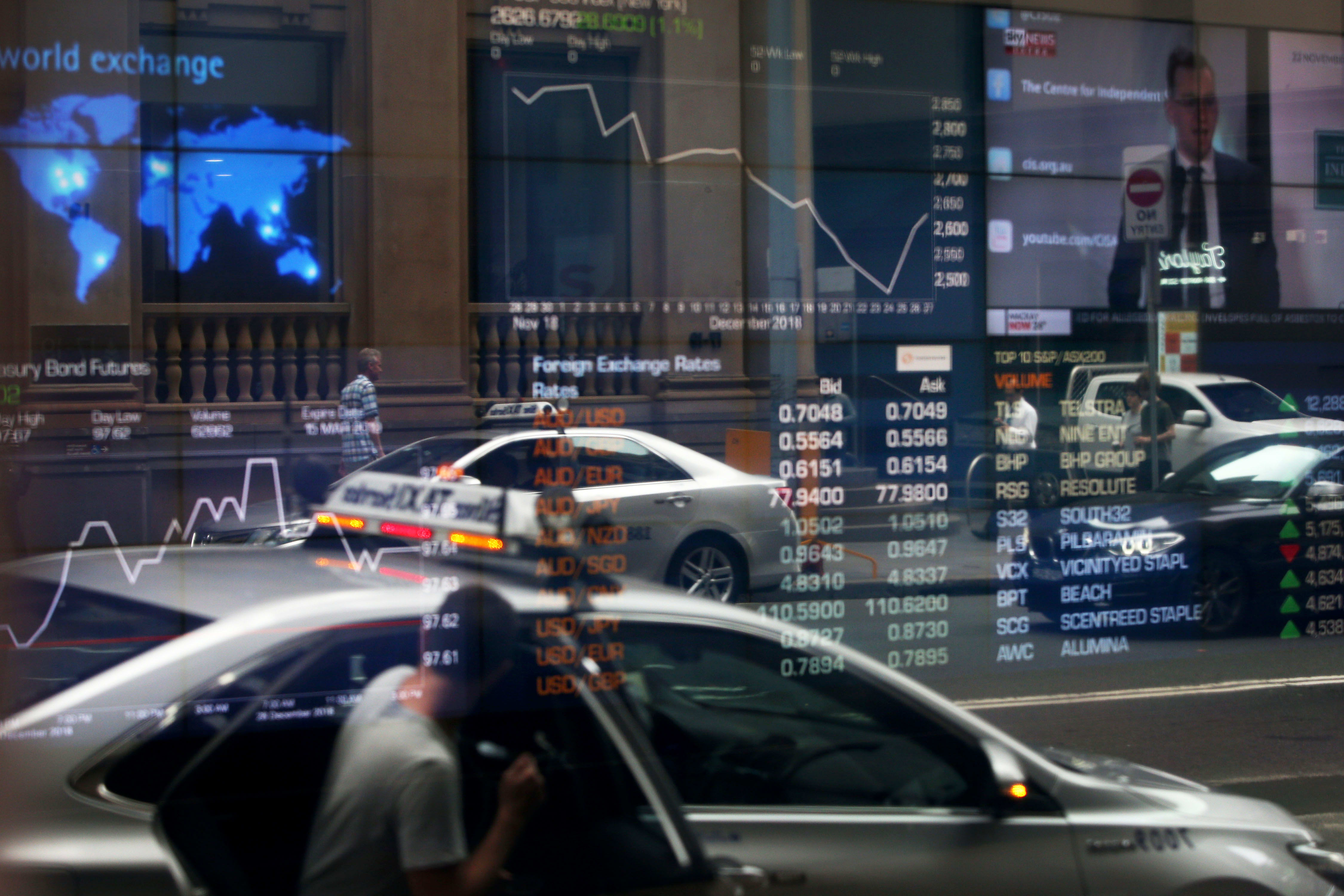
Vehicles are reflected in a window as electronic boards display stock information at the Australian Securities Exchange, operated by ASX.
Lisa Maree | Bloomberg | Getty Images
Futures pointed to a slightly higher open Monday in Australia as investors remain cautious over heightened U.S.-China tensions.
SPI futures traded up 0.7% at 6,014, a touch more than the benchmark ASX 200’s last close at 6,004.80. The Australian dollar changed hands at $0.7154, sliding from levels near $0.7200 in the previous week.
Australia is also tackling a fresh wave of coronavirus outbreak in Victoria state, which accounts for the majority of reported cases and deaths in the country. In an effort to slow the spread of infection, the state has imposed strict lockdown measures limiting people’s movements and closed large parts of the economy.
Markets in Japan are closed Monday for a public holiday.
U.S.-China tensions
U.S. President Donald Trump last week issued executive orders that are set to ban American use of WeChat and TikTok, taking effect from the middle of next month.
Following that, the Trump administration said it will impose a fresh round of sanctions on 11 individuals, including Hong Kong leader Carrie Lam for her role in overseeing and “implementing Beijing’s policies of suppression of freedom and democratic processes.”
Administration officials have also urged Trump to delist Chinese firms that trade on U.S. exchanges and fail to meet U.S. auditing requirements by Jan. 2022, Reuters reported last week.
“The bigger question for markets is whether these actions jeopardise the US-China trade talks on August 15 and markets will be looking closely for any Chinese retaliation,” Tapas Strickland, director for economics and markets at the National Australia Bank, wrote in a Monday morning note.
Officials from both sides are set to review the implementation of their phase one trade deal and are likely to air mutual grievances during an Aug. 15 video conference, Reuters reported last week, citing two sources familiar with the plans.
“The running assumption in markets has been President Trump needed the phase one deal to succeed (as much as China) this side of the November elections to secure the mid-West. At the same time President Trump is running a hard China line into the elections,” Strickland added.
U.S. futures slipped Sunday night after the president signed several executive orders aimed at extending coronavirus relief — infection cases in the U.S. topped 5 million.
The U.S. dollar traded at 93.430 against a basket of its peers, climbing from levels around 92.800 in the previous week.
Source: CNBC
